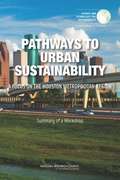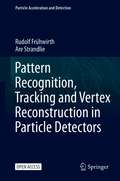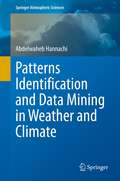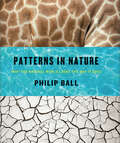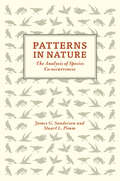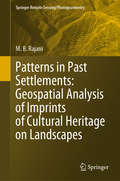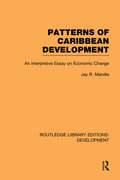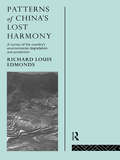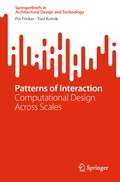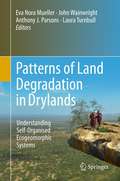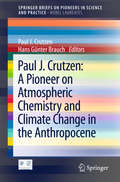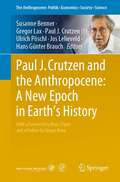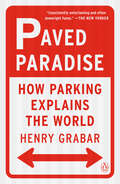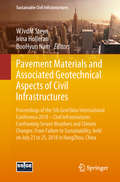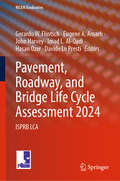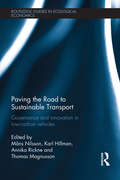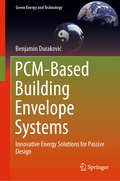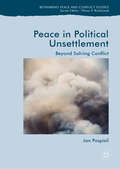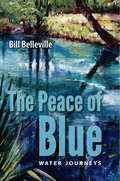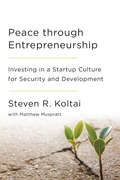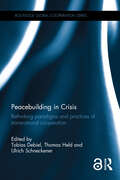- Table View
- List View
Pathways to Urban Sustainability
by Dominic A. BroseThe workshop was convened to explore the region's approach to urban sustainability, with an emphasis on building the evidence base upon which new policies and programs might be developed. Participants examined how the interaction of various systems (natural and human systems; energy, water, and transportation systems) affected the region's social, economic, and environmental conditions. The objectives of the workshop were as follows: - Discuss ways that regional actors are approaching sustainability- specifically, how they are attempting to merge environmental, social, and economic objectives. - Share information about ongoing activities and strategic planning efforts, including lessons learned. - Examine the role that science, technology, and research can play in supporting efforts to make the region more sustainable. - Explore how federal agency efforts, particularly interagency partnerships, can complement or leverage the efforts of other key stakeholders. Pathways to Urban Sustainability: A Focus on the Houston Metropolitan Region: Summary of a Workshop was designed to explore the complex challenges facing sustainability efforts in the Houston metropolitan region and innovative approaches to addressing them, as well as performance measures to gauge success and opportunities to link knowledge with action. In developing the agenda, the planning committee chose topics that were timely and cut across the concerns of individual institutions, reflecting the interests of a variety of stakeholders. Panelists were encouraged to share their perspectives on a given topic; however, each panel was designed to provoke discussion that took advantage of the broad experience of the participants.
Pathways to Urban Sustainability: Summary of a Workshop
by Dominic A. BroseThe workshop was convened to explore the region's approach to urban sustainability, with an emphasis on building the evidence base upon which new policies and programs might be developed. Participants examined how the interaction of various systems (natural and human systems; energy, water, and transportation systems) affected the region's social, economic, and environmental conditions. The objectives of the workshop were as follows: - Discuss ways that regional actors are approaching sustainability- specifically, how they are attempting to merge environmental, social, and economic objectives. - Share information about ongoing activities and strategic planning efforts, including lessons learned. - Examine the role that science, technology, and research can play in supporting efforts to make the region more sustainable. - Explore how federal agency efforts, particularly interagency partnerships, can complement or leverage the efforts of other key stakeholders. Pathways to Urban Sustainability: A Focus on the Houston Metropolitan Region: Summary of a Workshop was designed to explore the complex challenges facing sustainability efforts in the Houston metropolitan region and innovative approaches to addressing them, as well as performance measures to gauge success and opportunities to link knowledge with action. In developing the agenda, the planning committee chose topics that were timely and cut across the concerns of individual institutions, reflecting the interests of a variety of stakeholders. Panelists were encouraged to share their perspectives on a given topic; however, each panel was designed to provoke discussion that took advantage of the broad experience of the participants.
Patrick Geddes: Social Evolutionist and City Planner
by Helen MellerOne of the great social thinkers of the late nineteenth and early twentieth century, Sir Patrick Geddes (1854-1932) enjoyed a career of astonishing diversity. This new analysis of his life and work reviews his ideas and philosophy of planning, providing a scholarly yet accessible account for those interested in the history of planning, urban design, social theory and nineteenth century British history.
Pattern and Process in Cultural Evolution
by Stephen ShennanThis volume offers an integrative approach to the application of evolutionary theory in studies of cultural transmission and social evolution and reveals the enormous range of ways in which Darwinian ideas can lead to productive empirical research, the touchstone of any worthwhile theoretical perspective. While many recent works on cultural evolution adopt a specific theoretical framework, such as dual inheritance theory or human behavioral ecology,Pattern and Process in Cultural Evolution emphasizes empirical analysis and includes authors who employ a range of backgrounds and methods to address aspects of culture from an evolutionary perspective. Editor Stephen Shennan has assembled archaeologists, evolutionary theorists, and ethnographers, whose essays cover a broad range of time periods, localities, cultural groups, and artifacts.
Pattern Recognition, Tracking and Vertex Reconstruction in Particle Detectors (Particle Acceleration and Detection)
by Rudolf Frühwirth Are StrandlieThis open access book is a comprehensive review of the methods and algorithms that are used in the reconstruction of events recorded by past, running and planned experiments at particle accelerators such as the LHC, SuperKEKB and FAIR. The main topics are pattern recognition for track and vertex finding, solving the equations of motion by analytical or numerical methods, treatment of material effects such as multiple Coulomb scattering and energy loss, and the estimation of track and vertex parameters by statistical algorithms. The material covers both established methods and recent developments in these fields and illustrates them by outlining exemplary solutions developed by selected experiments. The clear presentation enables readers to easily implement the material in a high-level programming language. It also highlights software solutions that are in the public domain whenever possible. It is a valuable resource for PhD students and researchers working on online or offline reconstruction for their experiments.
Patterns Identification and Data Mining in Weather and Climate (Springer Atmospheric Sciences)
by Abdelwaheb HannachiAdvances in computer power and observing systems has led to the generation and accumulation of large scale weather & climate data begging for exploration and analysis. Pattern Identification and Data Mining in Weather and Climate presents, from different perspectives, most available, novel and conventional, approaches used to analyze multivariate time series in climate science to identify patterns of variability, teleconnections, and reduce dimensionality. The book discusses different methods to identify patterns of spatiotemporal fields. The book also presents machine learning with a particular focus on the main methods used in climate science. Applications to atmospheric and oceanographic data are also presented and discussed in most chapters. To help guide students and beginners in the field of weather & climate data analysis, basic Matlab skeleton codes are given is some chapters, complemented with a list of software links toward the end of the text. A number of technical appendices are also provided, making the text particularly suitable for didactic purposes.The topic of EOFs and associated pattern identification in space-time data sets has gone through an extraordinary fast development, both in terms of new insights and the breadth of applications. We welcome this text by Abdel Hannachi who not only has a deep insight in the field but has himself made several contributions to new developments in the last 15 years. - Huug van den Dool, Climate Prediction Center, NCEP, College Park, MD, U.S.A.Now that weather and climate science is producing ever larger and richer data sets, the topic of pattern extraction and interpretation has become an essential part. This book provides an up to date overview of the latest techniques and developments in this area. - Maarten Ambaum, Department of Meteorology, University of Reading, U.K.This nicely and expertly written book covers a lot of ground, ranging from classical linear pattern identification techniques to more modern machine learning, illustrated with examples from weather & climate science. It will be very valuable both as a tutorial for graduate and postgraduate students and as a reference text for researchers and practitioners in the field. - Frank Kwasniok, College of Engineering, University of Exeter, U.K.
Patterns in Nature: Why the Natural World Looks the Way It Does
by Philip BallThe acclaimed science writer &“curates a visually striking, riotously colorful photographic display…of physical patterns in the natural world&” (Publishers Weekly, starred review). Though at first glance the natural world may appear overwhelming in its diversity and complexity, there are regularities running through it, from the hexagons of a honeycomb to the spirals of a seashell and the branching veins of a leaf. Revealing the order at the foundation of the seemingly chaotic natural world, Patterns in Nature explores not only the math and science but also the beauty and artistry behind nature&’s awe-inspiring designs. Unlike the patterns we create, natural patterns are formed spontaneously from the forces that act in the physical world. Very often the same types of pattern and form—such as spirals, stripes, branches, and fractals—recur in places that seem to have nothing in common, as when the markings of a zebra mimic the ripples in windblown sand. But many of these patterns can be described using the same mathematical and physical principles, giving a surprising unity to the kaleidoscope of the natural world. Richly illustrated with 250 color photographs and anchored by accessible and insightful chapters by esteemed science writer Philip Ball, Patterns in Nature reveals the organization at work in vast and ancient forests, powerful rivers, massing clouds, and coastlines carved out by the sea. By exploring similarities such as the branches of a tree and those of a river network, this spectacular visual tour conveys the wonder, beauty, and richness of natural pattern formation.
Patterns in Nature: The Analysis of Species Co-Occurrences
by James G. Sanderson Stuart L. PimmWhat species occur where, and why, and why some places harbor more species than others are basic questions for ecologists. Some species simply live in different places: fish live underwater; birds do not. Adaptations follow: most fish have gills; birds have lungs. But as Patterns in Nature reveals, not all patterns are so trivial. Travel from island to island and the species change. Travel along any gradient--up a mountain, from forest into desert, from low tide to high tide on a shoreline --and again the species change, sometimes abruptly. What explains the patterns of these distributions? Some patterns might be as random as a coin toss. But as with a coin toss, can ecologists differentiate associations caused by a multiplicity of complex, idiosyncratic factors from those structured by some unidentified but simple mechanisms? Can simple mechanisms that structure communities be inferred from observations of which species associations naturally occur? For decades, community ecologists have debated about whether the patterns are random or show the geographically pervasive effect of competition between species. Bringing this vigorous debate up to date, this book undertakes the identification and interpretation of nature's large-scale patterns of species co-occurrence to offer insight into how nature truly works. Patterns in Nature explains the computing and conceptual advances that allow us to explore these issues. It forces us to reexamine assumptions about species distribution patterns and will be of vital importance to ecologists and conservationists alike.
Patterns in Past Settlements: Geospatial Analysis of Imprints of Cultural Heritage on Landscapes (Springer Remote Sensing/Photogrammetry)
by M.B. RajaniThis book is an introduction to a new branch of archaeology that scrutinises landscapes to find evidence of past human activity. Such evidence can be hard to detect at ground-level, but may be visible in remote sensing (RS) imagery from aerial platforms and satellites. Drawing on examples from around the world as well as from her own research work on archaeological sites in India (including Nalanda, Agra, Srirangapatna, Talakadu, and Mahabalipuram), the author presents a systematic process for integrating this information with historical spatial records such as old maps, paintings, and field surveys using Geographic Information Systems (GIS) to gain new insights into our past. Further, the book highlights several instances where these insights are actionable -- they have been used to identify, understand, conserve, and protect the fragile remnants of our past. This book will be of particular interest not only to researchers in archaeology, history, art history, and allied fields, but to governmental and non-governmental professionals working in cultural heritage protection and conservation.
Patterns of Caribbean Development: An Interpretive Essay on Economic Change (Routledge Library Editions: Development #Vol. 2)
by Jay MandleFirst published in 1982, this study attempts to put contemporary Caribbean development into historical perspective. By first constructing a Marxist framework for the study of development , Jay Mandle assesses the reasons why the region emerged underdeveloped and evaluates post-world-war two efforts to overcome the legacy of poverty through a strategy of "industrialization through invitation." Identifying the reasons why a Marxist framework yielded results which were unsatisfactory, the author then explores the requirements which must be met for a more reliable study of the Caribbean’s economic development. Case studies of Cuba, Jamaica, Guyana, Trinidad and Tobago examine the extent to which these requirements have been met.
Patterns of China's Lost Harmony: A Survey of the Country's Environmental Degradation and Protection
by Richard Louis EdmondsThe pace of environmental degradation in China has intensified in recent decades. With rapid demographic and economic growth, the current state of degradation has antecedents beginning hundreds of years ago. Patterns of China's Lost Harmony combines historical documentation with contemporary assessment to determine the degree of human impact upon the country's vegetation, soils, water, air and wildlife. This will serve as an important reference tool for understanding the historical scope of environmental degradation and for assessing attempts to control environmental degradation since the 1980s.
Patterns of Interaction: Computational Design Across Scales (SpringerBriefs in Architectural Design and Technology)
by Pia Fricker Toni KotnikThis book is a reflection on contemporary computational design thinking at the intersection of architecture, urban design, and landscape architecture, in a time marked by complex challenges like climate change, urbanization and population growth. Based on a critical rethinking of the notion of ground and the relation between the manmade and the natural environment, an understanding of architecture as regenerative practice is proposed. It aims at a built environment as landscape, at an architecture of prosthetic nature. The design approach is illustrated by a number of design experiments conducted within a studio setting and complemented by a series of conversations with leading experts on sustainable design and landscape architecture.
Patterns of Land Degradation in Drylands: Understanding Self-Organised Ecogeomorphic Systems
by Anthony J. Parsons Eva Nora Mueller John Wainwright Laura TurnbullThis book explores the theory of ecogeomorphic pattern-process linkages, using case studies from Europe, Africa, Australia and North America. Sets forth a research agenda for the emerging field of ecogeomorphology in drylands land-degradation studies.
Paul J. Crutzen: A Pioneer on Atmospheric Chemistry and Climate Change in the Anthropocene
by Paul J. Crutzen Hans Günter BrauchThis book contains texts by the Nobel laureate Paul J. Crutzen who is best known for his research on ozone depletion. It comprises Crutzen's autobiography, several pictures documenting important stages of his life, and his most important scientific publications. The Dutch atmospheric chemist is one of the world's most cited scientists in geosciences. His political engagement makes him a tireless ambassador for environmental issues such as climate change. He popularized the term 'Anthropocene' for the current geological era acknowledging the enduring influence of humankind on planet Earth. This concept conceives humans to be a geologic factor, influencing the evolution of our globe and the living beings populating it. The selection of texts is representing Paul Crutzen´s scientific oeuvre as his research interests span from ozone depletion to the climatic impacts of biomass burning, the consequences of a worldwide atomic war - the Nuclear Winter - to geoengineering and the Anthropocene.
Paul J. Crutzen and the Anthropocene: A New Epoch in Earth’s History (The Anthropocene: Politik—Economics—Society—Science #1)
by Hans Günter Brauch Paul J. Crutzen Susanne Benner Gregor Lax Ulrich Pöschl Jos LelieveldThis book outlines the development and perspectives of the Anthropocene concept by Paul J. Crutzen and his colleagues from its inception to its implications for the sciences, humanities, society and politics.The main text consists primarily of articles from peer-reviewed scientific journals and other scholarly sources. It comprises selected articles on the Anthropocene published by Paul J. Crutzen and a selection of related articles, mostly but not exclusively by colleagues with whom he collaborated closely.• In the year 2000 Nobel Laureate Paul J. Crutzen proposed the Anthropocene concept as a new epoch in Earth’s history • Comprehensive collection of articles on the Anthropocene by Paul J. Crutzen and his colleagues• Unique primary research literature and Crutzen’s comprehensive bibliography• Paul Crutzen’s scientific investigations into human influences on atmospheric chemistry and physics, the climate and the Earth system, leading to the conception of the Anthropocene• Reflections on the Anthropocene and its implications• Bibliometric review of the spread of the use of the Anthropocene concept in the Natural and Social Sciences, Humanities and Law
Paved Paradise: How Parking Explains the World
by Henry Grabar&“Consistently entertaining and often downright funny.&” —The New Yorker&“Wry and revelatory.&” —The New York Times"A romp, packed with tales of anger, violence, theft, lust, greed, political chicanery and transportation policy gone wrong... highly entertaining." —The Los Angeles TimesAn entertaining, enlightening, and utterly original investigation into one of the most quietly influential forces in modern American life—the humble parking spotParking, quite literally, has a death grip on America: each year a handful of Americans are tragically killed by their fellow citizens over parking spots. But even when we don&’t resort to violence, we routinely do ridiculous things for parking, contorting our professional, social, and financial lives to get a spot. Indeed, in the century since the advent of the car, we have deformed—and in some cases demolished—our homes and our cities in a Sisyphean quest for cheap and convenient car storage. As a result, much of the nation&’s most valuable real estate is now devoted exclusively to empty and idle vehicles, even as so many Americans struggle to find affordable housing. Parking determines the design of new buildings and the fate of old ones, patterns of traffic and the viability of transit, neighborhood politics and municipal finance, the quality of public space, and even the course of floodwaters. Can this really be the best use of our finite resources and space? Why have we done this to the places we love? Is parking really more important than anything else?These are the questions Slate staff writer Henry Grabar sets out to answer, telling a mesmerizing story about the strange and wonderful superorganism that is the modern American city. In a beguiling and often absurdly hilarious mix of history, politics, and reportage, Grabar brilliantly surveys the pain points of the nation&’s parking crisis, from Los Angeles to Disney World to New York, stopping at every major American city in between. He reveals how the pathological compulsion for car storage has exacerbated some of our most acute problems—from housing affordability to the accelerating global climate disaster—ultimately, lighting the way for us to free our cities from parking&’s cruel yoke.
Pavement Materials and Associated Geotechnical Aspects of Civil Infrastructures: Proceedings of the 5th GeoChina International Conference 2018 – Civil Infrastructures Confronting Severe Weathers and Climate Changes: From Failure to Sustainability, held on July 23 to 25, 2018 in HangZhou, China (Sustainable Civil Infrastructures)
by WJvdM Steyn Irina Holleran BooHyun NamThis book contains latest research studies regarding issues related to civil infrastructure such as pavement layers and material properties. It contains research data and conclusions that should lead to more resilient infrastructure design, maintenance and management. Civil engineering researchers and practitioners will gain valuable information from this material. Papers were selected from the 5th GeoChina International Conference on Civil Infrastructures Confronting Severe Weathers and Climate Changes: From Failure to Sustainability, held on July 23-25, 2018 in HangZhou, China.
Pavement, Roadway, and Bridge Life Cycle Assessment 2024: ISPRB LCA (RILEM Bookseries #51)
by John Harvey Imad L. Al-Qadi Hasan Ozer Gerardo W. Flintsch Eugene A. Amarh Davide Lo PrestiThis book highlights the latest advances, innovations, and applications in the field of LCA in pavements, bridges, and roadways, as presented by leading international researchers at the 6th International Symposium on Pavement, Roadway, and Bridge Life Cycle Assessment (ISPRB LCA2024), held in Arlington, VA, USA, on June 6–8, 2024. It covers a diverse range of topics concerning assessment of environmental impacts of pavements, bridges, and roadways, including environmental product declarations (EPDs) and use of life cycle assessment (LCA) in design, data, and case studies: LCA methodologies for transportation infrastructure, durability and service life assessments, maintenance strategies to enhance performance and minimize environmental impacts, evaluating the environmental impacts of materials and construction, recycling and reuse of materials, carbonation of concrete, pavement vehicle interaction, life cycle thinking in climate change planning, and climate change mitigation. The contributions, which were selected by means of a rigorous international peer-review process, present a wealth of exciting ideas that will open novel research directions and foster new multidisciplinary collaborations.
Paving the Road to Sustainable Transport: Governance and innovation in low-carbon vehicles (Routledge Studies In Ecological Economics Ser. #20)
by Mans Nilsson Karl Hillman Annika Rickne Thomas MagnussonThis book is about how societies around the world can accelerate innovation in sustainable transport. It examines the relationship between policy change and the development of technological innovations in low carbon vehicle technologies, including biofuels, hybrid-electric vehicles, electric vehicles and fuel cells. Examining this relationship across countries and regions that are leaders in vehicle manufacturing and innovation, such as the European Union, Germany, Sweden, China, Japan, Korea and USA, the books aims to learn lessons about policy and innovation performance.
PCM-Based Building Envelope Systems: Innovative Energy Solutions for Passive Design (Green Energy and Technology)
by Benjamin DurakovićPCM Enhanced Building Envelopes presents the latest research in the field of thermal energy storage technologies that can be applied to solar heating and cooling with the aim of shifting and reducing building energy demand. It discusses both practical and technical issues, as well as the advantages of using common phase change materials (PCMs) in buildings as a more efficient, novel solution for passive solar heating/cooling strategies. The book includes qualitative and quantitative descriptions of the science, technology and practices of PCM-based building envelopes, and reflects recent trends by placing emphasis on energy storage solutions within building walls, floors, ceilings, façades, windows, and shading devices. With the aim of assessing buildings’ energy performance, the book provides advanced modeling and simulation tools as a theoretical basis for the analysis of PCM-based building envelopes in terms of heat storage and transfer. This book will be of interest to all those dealing with building energy analysis such as researchers, academics, students and professionals in the fields of mechanical and civil engineering and architectural design
Peace in Political Unsettlement: Beyond Solving Conflict (Rethinking Peace and Conflict Studies)
by Jan PospisilInternational peacebuilding has reached an impasse. Its lofty ambitions have resulted in at best middling success, punctuated by moments of outright failure. The discrediting of the term ‘liberal peacebuilding’ has seen it evolve to respond to the numerous critiques. Notions such as ‘inclusive peace’ merge the liberal paradigm with critical notions of context, and the need to refine practices to take account of ‘the local’ or ‘complexity’. However, how this would translate into clear guidance for the practice of peacebuilding is unclear. Paradoxically, contemporary peacebuilding policy has reached an unprecedented level of vagueness. Peace in political unsettlement provides an alternative response rooted in a new discourse, which aims to speak both to the experience of working in peace process settings. It maps a new understanding of peace processes as institutionalising formalised political unsettlement and points out new ways of engaging with it. The book points to the ways in which peace processes institutionalise forms of disagreement, creating ongoing processes to manage it, rather than resolve it. It suggests a modest approach of providing ‘hooks’ to future processes, maximising the use of creative non-solutions, and practices of disrelation, are discussed as pathways for pragmatic post-war transitions. It is only by understanding the nature and techniques of formalised political unsettlement that new constructive ways of engaging with it can be found.
The Peace of Blue: Water Journeys
by Bill BellevilleThe Earth’s surface is mostly oceans, the human body is approximately 60% water, and the human imagination has been captivated by this life-giving, life-sustaining liquid from time immemorial.According to Carl Hiaasen, Bill Belleville “writes gorgeously and straight from the heart. In The Peace of Blue, the documentarian and nature writer guides you on a lyrical journey to the natural places in Florida and the Caribbean that have been forged and shaped by water. He poetically underscores the vitality of this most essential substance in our lives by showing the many ways in which water-driven landscapes nurture plants, wildlife—and the human spirit.Experience the thrill of traveling to the remote islands of Cuba and to sacred cenotes in the Dominican Republic. Contemplate the shores of Florida’s rivers and lakes and marvel at swamps and seepage slopes. Immerse yourself in the underwater world of clear, fresh springs, and dive into the deep karst caves that are worlds unto themselves.Through adventure and contemplative excursions, Belleville shares his contagious respect—and awe—for the singularity and transcendence of the natural world. We are companions in his search for a distinct sense of place, fellow journeymen in his quest to discover within the watery depths a greater awareness that informs and shapes our common identity.
Peace of Mind in Earthquake Country
by Peter YanevThe geologic, architectural and structural hazards of earthquakes, and how to recognize, avoid or correct them.
Peace Through Entrepreneurship: Investing in a Startup Culture for Security and Development
by Matthew Muspratt Steven R. KoltaiJoblessness is the root cause of the global unrest threatening American security. Fostering entrepreneurship is the remedy.The combined weight of American diplomacy and military power cannot end unrest and extremism in the Middle East and other troubled regions of the world, Steven Koltai argues. Koltai says an alternative approach would work: investing in entrepreneurship and reaping the benefits of the jobs created through entrepreneurial startups.From 9/11 and the Arab Spring to the self-proclaimed Islamic caliphate, instability and terror breed where young people cannot find jobs. Koltai marshals evidence to show that joblessness-not religious or cultural conflict-is the root cause of the unrest that vexes American foreign policy and threatens international security.Drawing on Koltai's stint as senior adviser for Entrepreneurship in Secretary Hillary Clinton's State Department, and his thirty-year career as a successful entrepreneur and business executive, Peace through Entrepreneurship argues for the significant elevation of entrepreneurship in the service of foreign policy; not rural microfinance or mercantile trading but the scalable stuff of Silicon Valley and Sam Walton, generating the vast majority of new jobs in economies large and small.Peace through Entrepreneurship offers a nonmilitary, long-term solution at a time of disillusionment with Washington's "big development" approach to unstable and underdeveloped parts of the world-and when the new normal is fear of terrorist attacks against Western targets, beheadings in Syria, and jihad. Extremism will not be resolved by a war on terror. The answer, Koltai shows, is stimulating entrepreneurial economic opportunities for the virtually limitless supply of desperate, unemployed young men and women leading lives of endless economic frustration.
Peacebuilding in Crisis: Rethinking Paradigms and Practices of Transnational Cooperation (Routledge Global Cooperation Series)
by Tobias Debiel Thomas Held Ulrich SchneckenerThe 1990s saw a constant increase in international peace missions, predominantly led by the United Nations, whose mandates were more and more extended to implement societal and political transformations in post-conflict societies. However, in many cases these missions did not meet the high expectations and did not acquire a sufficient legitimacy on the local level. Written by leading experts in the field, this edited volume brings together ‘liberal’ and ‘post-liberal’ approaches to peacebuilding. Besides challenging dominant peacebuilding paradigms, the book scrutinizes how far key concepts of post-liberal peacebuilding offer sound categories and new perspectives to reframe peacebuilding research. It thus moves beyond the ‘liberal’–‘post-liberal’ divide and systematically integrates further perspectives, paving the way for a new era in peacebuilding research which is theory-guided, but also substantiated in the empirical analysis of peacebuilding practices.This book will be essential reading for postgraduate students and scholar-practitioners working in the field of peacebuilding. By embedding the subject area into different research perspectives, the book will also be relevant for scholars who come from related backgrounds, such as democracy promotion, transitional justice, statebuilding, conflict and development research and international relations in general.
